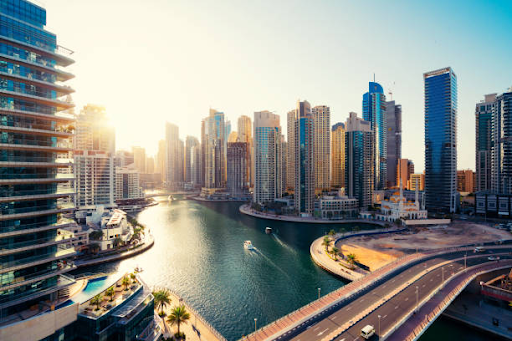When you are thinking about starting a business, it is important to know the cost of a RAK Free Zone license. The cost of a RAK Free Zone license includes many different parts, so it is important for potential business owners to be knowledgeable. This article breaks down all the costs and what they cover. We want to give you enough information on different licenses, initial fees, additional costs and what is included in the license fees so that you can make informed decisions about setting up your business. With this knowledge in hand, you will be able to budget better for your venture and have an easier time getting started. So let’s get into some specifics about RAK Free Zone licensing.
Understanding RAK Free Zone Licensing
What is RAK Free Zone?
Ras Al Khaimah (RAK) Free Zone is an international trade hub located in UAE. It offers many incentives for businesses such as 100% foreign ownership, zero personal taxes and easy application process among others. The free zone has modern infrastructure which makes it very attractive coupled with its strategic location geographically as well as supportive government policies towards businesses. Startups within this area can enjoy quick set up times and access markets within GCC region and beyond easily. Additionally, there are tailored services offered by RAK free zone that cater for different business needs hence making it ideal choice for any entrepreneur or company looking forward to expanding their horizons.

Types of Licenses Offered in RAK Free Zone
There are various types of licenses that one can get from RAK free zone depending on their industry requirements which include:
- Trading License: This type suits those involved in importation/exportation of goods.
- Consultancy License: For consultants in areas like management consultancy; financial advisory services etcetera.
- Industrial License: Meant for manufacturing companies within the free zone area.
- Service License: Applicable where service based businesses such as IT support; HR consultancy among others exist.
It is important to choose the right license for your business as this will determine what activities you can legally engage in. Each license has its own set of requirements and may come with different costs hence it is crucial that you select one which aligns with your objectives.
Breakdown of RAK Free Zone License Costs
Initial License Fees
The initial fee for getting a RAK free zone license usually depends on the type of license being applied for and nature of business. These fees can range from AED 7,000 to AED 50,000 or more depending on factors like company size; number of visas required; industry sector among others. During application process there might also be some documentations & verifications related expenses which could further increase overall cost of obtaining such licenses therefore it’s advisable for potential owners to plan well financially during this stage by seeking local expertise so as not to be caught off guard with unforeseen costs.
Additional Costs Associated with Licensing
Once you have understood the main license fee, it is important to know about other charges that may arise. Such costs include:
- Documentation Fees: These are charges incurred when notarizing and translating necessary documents.
- Registration Fees: This is the amount paid during registration process with free zone authority where your business will be located.
All these factors combined can cause a big increase in the total budget, which shows why it is important to know about these extra costs. While the main license cost is a significant factor, these ancillary costs can impact your overall financial planning for establishing your enterprise.
Annual Renewal Fees
Once you have set up your business in RAK Free Zone, annual renewal fees become an ongoing expense that needs to be factored in. The renewal fees may change each year depending on any changes in business activities or increases in service charges set by the Free Zone authority. Usually, these fees are 20-30% lower than the initial license costs and can range from AED 3,000 to AED 10,000. However, if you plan on expanding or changing your business operations, these factors may also affect your renewal fees.
Other Expenses to Consider
Apart from licensing and renewal fees, there are various other expenses that businesses should keep in mind. Office rental, for example, can vary significantly based on the type of space required – whether it is a co-working environment or a dedicated office suite. Additionally, visa costs for employees should not be overlooked. Visa applications can range from AED 1,000 to AED 3,000 per employee depending on specific needs and services provided. Some banks may also impose setup fees for business accounts which will add to your initial financial outlay.
In summary: having a comprehensive understanding of all costs involved is necessary so as to create an accurate budget reflecting all operational and licensing fees expected.
What’s Included in the RAK Free Zone License Costs?
Services Covered by License Fees
When you pay the RAK Free Zone license fees there are several key services included which make this investment worthwhile. These services typically cover documentation; administrative support; assistance with business setup processes etc., Moreover licenses often grant access to wide range facilities including office space logistics services IT infrastructure etc., By knowing what your fees cover you can fully maximize the benefits offered by the Free Zone authority.
Networking Opportunities
Another advantage of getting a RAK Free Zone license is being able to attend different networking events and community initiatives. These events are designed for business owners to meet potential clients, suppliers and partners. Such networking opportunities can be invaluable for business development, brand establishment and finding collaborative ventures. In addition to events, RAK Free Zone offers numerous support services aimed at helping businesses thrive in that environment.
Summary
In conclusion: understanding RAK Free Zone license costs is crucial when setting up a successful business. From initial license fees to additional expenses every component requires careful consideration. The various types of licenses available cater for different business needs thus allowing flexibility for entrepreneurs. Comprehensive planning will enable businesses effectively budget for operational costs thereby paving way for smoother setup process. Ultimately being knowledgeable about what is included in the license costs can save both time and money making it essential for anyone keen on establishing presence within thriving RAK Free Zone.
FAQs
FAQ 1: How long does a RAK Free Zone license last?
A RAK Free Zone license is valid for one year after which it must be renewed annually.
FAQ 2: Are there any hidden costs in getting a RAK Free Zone license?
Yes, there are extra fees like documentation and registration charges which may not be included in the initial license fee.
FAQ 3: How can I cut down on the cost of RAK Free Zone licensing?
You can potentially reduce costs by researching what documents are needed, looking out for promotions or going for shared office spaces.
FAQ 4: Can a startup survive in RAK Free Zone?
Definitely! RAK Free Zone is very good for startups because it has an enabling environment for business and many support services.
FAQ 5: What kind of businesses can benefit from having a license in RAK Free Zone?
Different types of businesses can benefit from this including trading, consulting, e-commerce and manufacturing due to the flexibility and support available within the zone.
